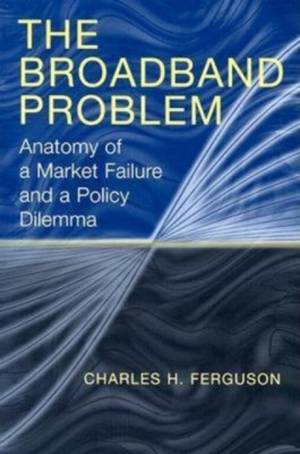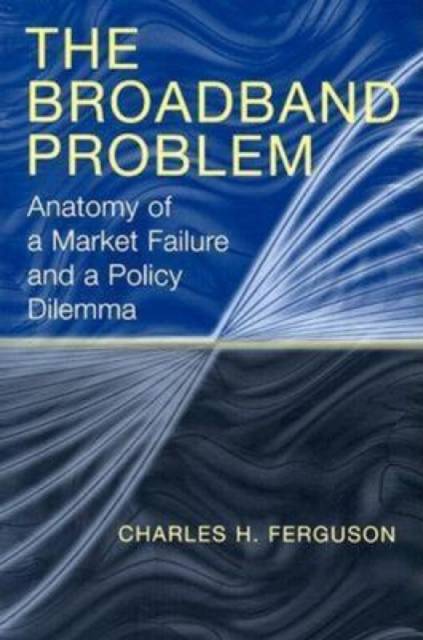
- Retrait gratuit dans votre magasin Club
- 7.000.000 titres dans notre catalogue
- Payer en toute sécurité
- Toujours un magasin près de chez vous
- Retrait gratuit dans votre magasin Club
- 7.000.000 titres dans notre catalogue
- Payer en toute sécurité
- Toujours un magasin près de chez vous
The Broadband Problem
Anatomy of a Market Failure and a Policy Dilemma
Charles H FergusonDescription
As the Internet revolution continues to unfold and transform telecommunications, pressure is building for faster, less expensive, and more widely accessible broadband service. Such a development would facilitate improved and less expensive traditional applications such as voice telephony and web browsing. It would also enable new and useful applications such as Internet-based television, videoconferencing, and software distribution. Broadband has great potential to improve efficiency and productivity, even to improve national security in some cases. Broadband service and affordability, however, have consistently lagged well behind demand and progress in information technology, with damaging results. The Internet revolution remains incomplete and threatens to stagnate if the situation continues. In The Broadband Problem, economist and technology entrepreneur Charles H. Ferguson explains the causes and ramifications of this damaging bottleneck, and he offers suggestions on improving the current state of affairs. He asserts that current telecommunications law and policy have not provided sufficient levels of new entry, competition, and innovation in the local telecom market. The continuing dominance of ILECs (incumbent local exchange carriers) in that market impedes the healthy, and much-needed, development of an efficient broadband market. The result of these policy and market failures is inadequate technological progress, innovation, and productivity in advanced Internet services and telecommunication services generally. The broadband problem is holding us back, and thus must be addressed and solved. With this important volume, Charles Ferguson has contributed mightily to that mission.
"Spécifications
Parties prenantes
- Auteur(s) :
- Editeur:
Contenu
- Nombre de pages :
- 236
- Langue:
- Anglais
Caractéristiques
- EAN:
- 9780815706458
- Date de parution :
- 21-04-04
- Format:
- Livre broché
- Format numérique:
- Trade paperback (VS)
- Dimensions :
- 144 mm x 229 mm
- Poids :
- 349 g







